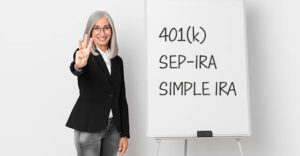Congress has been on recess and will return September 8th, but more COVID-19 economic relief legislation may well be on the way and now is the time to prepare for what may be coming.
Leaders of the American Institute of Certified Public Accountants (AICPA) last week discussed various aspects of the current and possible future government economic relief programs. Among their key updates were:
- Businesses who have taken Paycheck Protection Program (PPP) loans and are interested in applying for forgiveness of those loans, and who did not use all their funds in 8 weeks need to wait until the guidance is available on how to apply the full-time employees (FTEs) calculation required for forgiveness. If 100% is used in the 8 week period and businesses meet the FTE test, applications will be available in September. Everyone else should wait for future guidance or until the 24 week period has expired. The SBA answered a couple of key questions:
- Who are considered owners? For C and S corporations, stockholders with 5% or more ownership, including family attribution. This is applicable to the salary limitation when using the 24 week period.
- Related party rents are only eligible for forgiveness to the extent of the lessor’s mortgage interest expense during the applicable period.
- Application for PPP loan forgiveness will most likely be broken into three levels. Borrowers for PPP loans of $100,000 or $150,000 (amount to be determined by the final legislation) or less will not have to complete the detailed forgiveness application. Request for forgiveness for these small dollar PPP loans is anticipated to be a very short one or two page form, with no proof of need required. Loans greater than $100,000 (or $150,000) and less than $2 million will require the complete, more detailed forgiveness application, but these borrowers will not require proof of need. Forgiveness applications for loans over $2 million will include an audit provision and we expect will include some verification of need for the funds.
- The Democrat-led House of Representatives and the Republican-controlled Senate are each working on economic relief packages. The House package is valued at approximately $3 trillion and would focus on providing funding to government agencies, state and municipal governments, and school districts, the USPS and an extension of the $600 monthly federal unemployment benefit. The Senate’s bill would carry a $1 trillion price tag and focus on providing businesses and schools with liability protection in COVID-19 lawsuits, funding for schools, a lower unemployment benefit to eventually be limited to 70% of workers’ prior income, and significantly less assistance to states and municipal governments, tied to revenue losses and COVID infection rates. Both plans allow for another round of $1,200 economic stimulus payments to families.
- President Trump issued an executive memorandum directing the US Treasury to institute a deferral on the employee portion of social security taxes for the period September 1 – December 31, 2020 for employees earning $4,000 or less in bi-weekly wages on a pay-period-by-period basis. The Treasury guidance requires the employer to withhold and repay the deferred taxes from January 1 – April 30, 2021. As we wait for additional guidance, we urge you to contact your payroll or software provider to determine the best course of action, if any, for your business and proceed with caution.
- While details of the next relief package have not been determined, the AICPA remains hopeful that expenses funded by PPP loan proceeds will ultimately be deductible.
- The next round of PPP-type loans will be more targeted, with recipient businesses having to demonstrate either a 25% or higher loss of revenue in 2020 compared to 2019.
- We hope that Congress will reach agreement on a coming relief package by mid-October, or such an agreement would likely be on hold until after the election, possibly being enacted in December or January.
Considering all of these factors, Lopata, Flegel is advising clients who have received PPP loans to wait to apply for forgiveness until more clarification on PPP loan forgiveness guidelines is issued. At this point, waiting for more information appears to have no downside, while rushing to apply could cost borrowers money.
We realize PPP loans have become increasingly complex, and will only become more so. For help completing your PPP loan forgiveness application or if you have any questions regarding the PPP or your business’s eligibility for loan forgiveness please email or call your Lopata, Flegel & Company contact, or call the firm at 314-514-8881.


